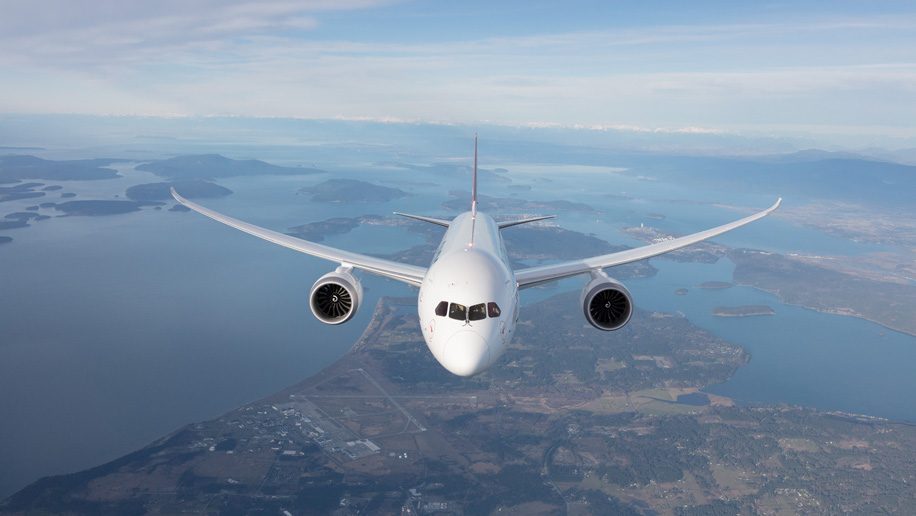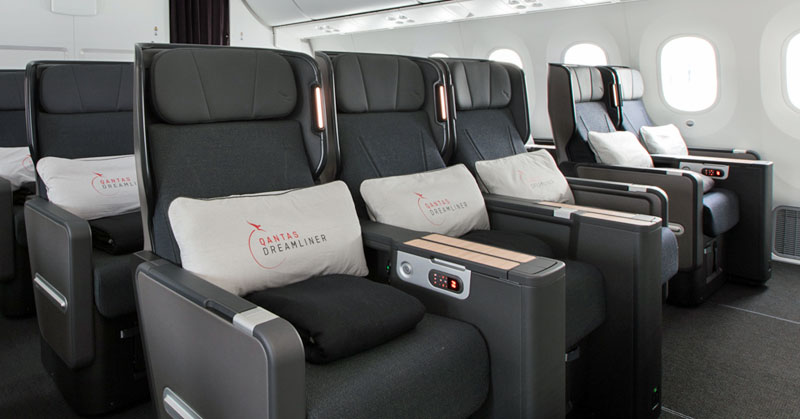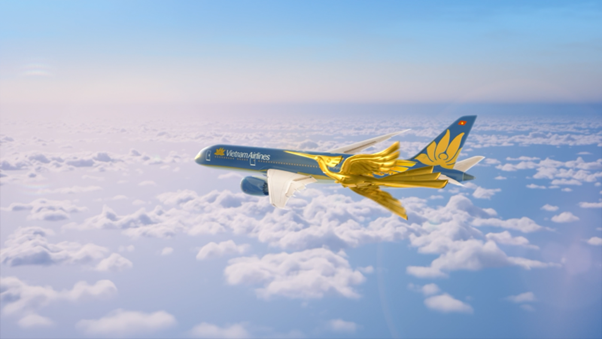The Group has pledged to cap net emissions from 2020, saying that it would “immediately” double the number of flights being offset, and invest A$50 million (US$34.25 million) over 10 years to help develop a “sustainable aviation fuel industry”.
Cutting net carbon emissions
The Qantas Group says it has set a goal to cap net carbon emissions at 2020 levels and finally reach net-zero carbon emissions by 2050.
The Group says that Qantas, Jetstar Australia, and New Zealand, Qantas Link and Qantas Freight will offset all growth in emissions from domestic and international operations from 2020.

The Qantas Group says it has committed to achieving net zero carbon emissions by 2050 (Cre: Qantas).
This includes offsetting all net emissions from Project Sunrise, Qantas’ plan to operate non-stop flights from the east coast of Australia to London and New York, should the project proceed. Qantas just finished its first ultra-long-haul research flight from New York to Sydney in mid-October.
This will also extend to domestic routes, and the Group says the growth on its “key routes” like Melbourne-Sydney will be carbon neutral.
Offsetting flights
From now on, Qantas and Jetstar will double the number of flights offset by “matching every dollar spent by customers who tick the box to fly carbon neutral”.
According to Qantas, currently around 10 percent of customers booking their flights on the airline’s website choose to offset their flights, and those who tick the box to offset a flight every minute can also earn 10 Qantas points per A$1 (US$0.69) spent offsetting. In the financial year 2019, Qantas customers have offset 150,000 tonnes of carbon, which is the equivalent of taking 55,000 cars off the road.
Qantas says this additional investment of doubling the offsetting flights will see Qantas Future Planet, the airline’s offsetter, support more conservation and environmental projects in Australia and the world.
The existing carbon offset projects of Qantas Future Planet include protecting the Great Barrier Reef, working with indigenous communities to reduce wildfires in Western Australia, and securing over 7,000 hectares of a native Tasmanian forest.
Sustainable aviation fuel
Qantas also says it will invest A$50 million (US$34.25 million) over the next ten years to help develop a sustainable aviation fuel industry.
According to the airline, sustainable aviation fuel can reduce carbon emissions by 80 per cent compared to traditional jet fuel, but this is almost double the price at the moment. Qantas says it will work with governments and private sector partners to support the development of sustainable aviation fuel in Australia and overseas to “make it more viable and increase demand throughout the industry”.
In addition to sustainable fuel, Qantas says it will also continue to reduce emissions through continued investment in more fuel-efficient aircraft, more efficient operations such as single-engine taxiing and “smarter flight planning” to reduce fuel burn.

Qantas’ Dreamliners interior (Cre: Qantas).
The Australian flag carrier plans to replace its Boeing 747 fleet by the end of 2020 with the Boeing 787 Dreamliners that burn 20 percent less fuel than aircraft of a similar size and thus are more fuel-efficient.
Meanwhile, Jetstar will also begin to receive its 18 A321neo LR aircraft between 2020 and 2022. The airline says that A321neo LRs are more fuel-efficient with up to 15 percent reduction in fuel burn and reduction in CO2 emissions.
The Qantas Group said it will continue to work with aircraft and engine manufacturers on next-generation technology for emissions reduction, but they admit that innovations like electric aircraft engines are “still some time away”.
The Group is also aiming to eliminate 100 million single-use plastics by 2020 and achieve a 75 percent reduction in waste that ends up in landfills in 2021.
Qantas Group CEO Alan Joyce says the long-term goal of being completely net carbon neutral by 2050 is “ambitious, but achievable”.
“Concerns about emissions and climate change are real, but we can’t lose sight of the contribution that air travel makes to society and the economy. The industry has already come a long way in cutting its footprint and the solution from here isn’t to simply ‘fly less’ but to make it more sustainable.
“Qantas offsets all of its own travel needs and so do many of our customers. By matching their efforts, we’re hoping it will encourage even more people to offset and the program will keep growing,” he added.
Some other airlines in the world have been seeking ways to make the airline industry more sustainable through measures such as boosting biofuel use and working on electric aviation schemes.
Cre: Qantas
Nguyen Mai Huong-COMM










